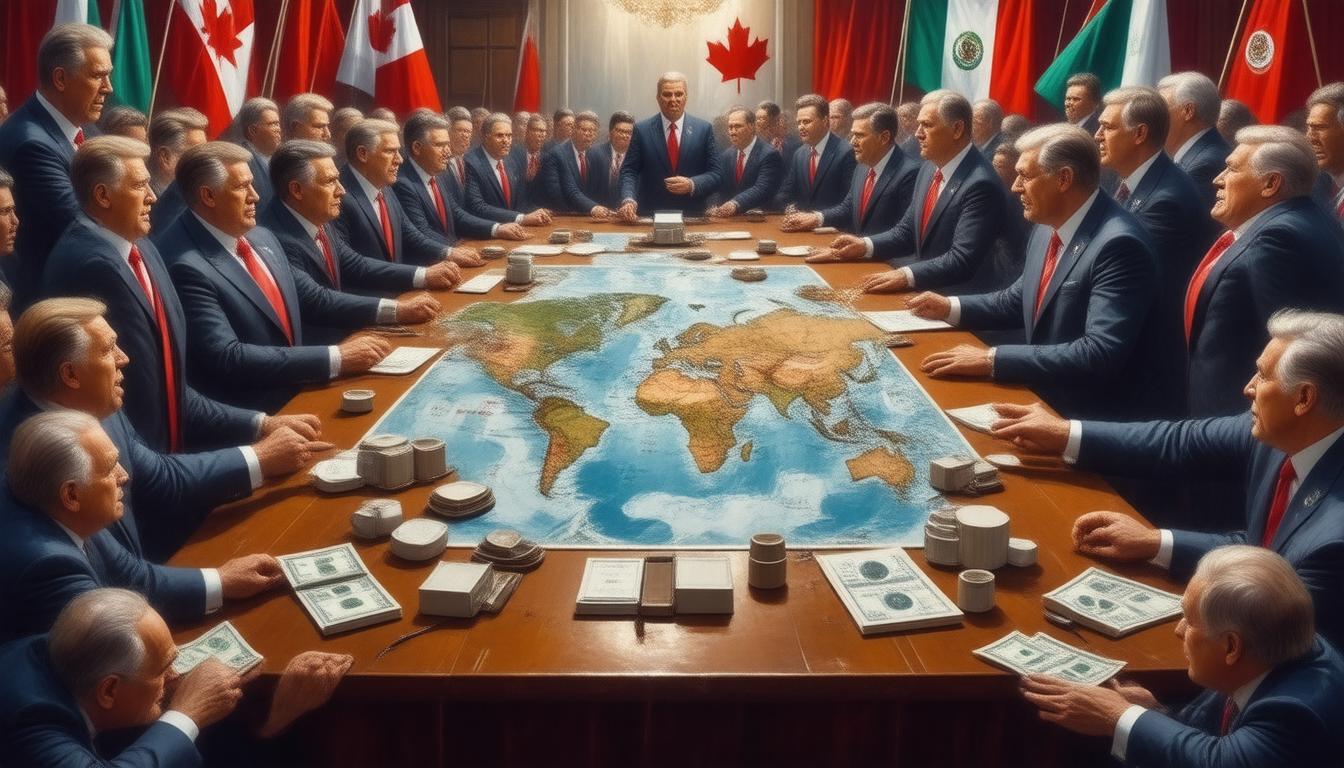The recent escalation in trade tensions, triggered by President Trump’s announcement of new tariffs, has sent ripples through key global markets.
As of February 2, 2025, a 25% tariff on a wide array of American goods entering Canada is set to take effect, precipitating over $100 billion in trade disruptions.
Canada, Mexico, and China, some of the U.S.’s most significant trading partners, now find themselves in a precarious position as they navigate the implications of these tariffs, which may reshape their economic relationships with the United States.
In this article, we delve into how these tariffs are poised to affect U.S.-Canada relations and examine the potential responses from China and Mexico.
Key Takeaways
- Trump’s new tariffs have escalated tensions with Canada, China, and Mexico.
- Canada faces a significant 25% tax on American goods, prompting concerns about U.S.-Canada relations.
- Both China and Mexico are preparing retaliatory measures in response to the trade war.
Impact of Trump’s Tariffs on U.S.-Canada Relations
The impact of President Trump’s tariffs on U.S.-Canada relations marks a troubling escalation in the ongoing trade war that has significant implications for global commerce.
Effective February 2, 2025, new tariffs will impose a staggering 25% tax on a wide array of American goods flowing into Canada, affecting more than $100 billion in trade.
In contrast, Canadian energy exports to the U.S.
will be subject to a more lenient 10% tariff, shedding light on the stark imbalance each country faces.
Canadian Prime Minister Justin Trudeau voiced his deep disappointment regarding these developments, emphasizing that the future of U.S.-Canada relations hinges on cooperation and mutual respect.
The economic tension doesn’t stop there; China has stepped in, signaling its intention to respond with countermeasures and potential legal actions through the World Trade Organization (WTO), signaling a growing global trade divide.
Meanwhile, Mexican President Claudia Sheinbaum has warned of possible retaliatory measures if negotiations with the U.S.
stall any longer, pointing to the increasing protectionist sentiment that threatens not only bilateral relations but also the stability of international trade norms.
This situation represents a pivotal moment in trade relations, as countries navigate the treacherous waters of tariffs and retaliation in what appears to be a concerted push towards protectionism.
China and Mexico’s Response to Tariff Escalation
Both Canada and China have voiced strong concerns regarding the latest round of tariffs imposed by the United States, signaling a potentially rocky road ahead for international trade relations.
In response to the hefty 25% tariffs set to affect American goods entering Canada, Prime Minister Trudeau is not just lamenting the economic repercussions but is also calling for a reevaluation of the nature of trade partnerships in North America.
With strategic energy exports receiving a less harsh 10% tariff, there’s a glimmer of hope for certain sectors amidst the tumult.
On the other hand, China’s strategy entails utilizing the World Trade Organization (WTO) as a platform to address grievances and possibly retaliate against U.S.
tariffs through legal channels.
The implications of these trade moves are vast, as both nations prepare to navigate a landscape increasingly marred by protectionist policies.
Mexico, observing closely, is also on high alert; President Sheinbaum’s potential retaliatory actions could range widely, impacting both tariff and non-tariff avenues.
This tense situation necessitates consumers to remain informed, as the shifting dynamics of international trade may ultimately affect pricing, availability of goods, and the overall economic climate.











